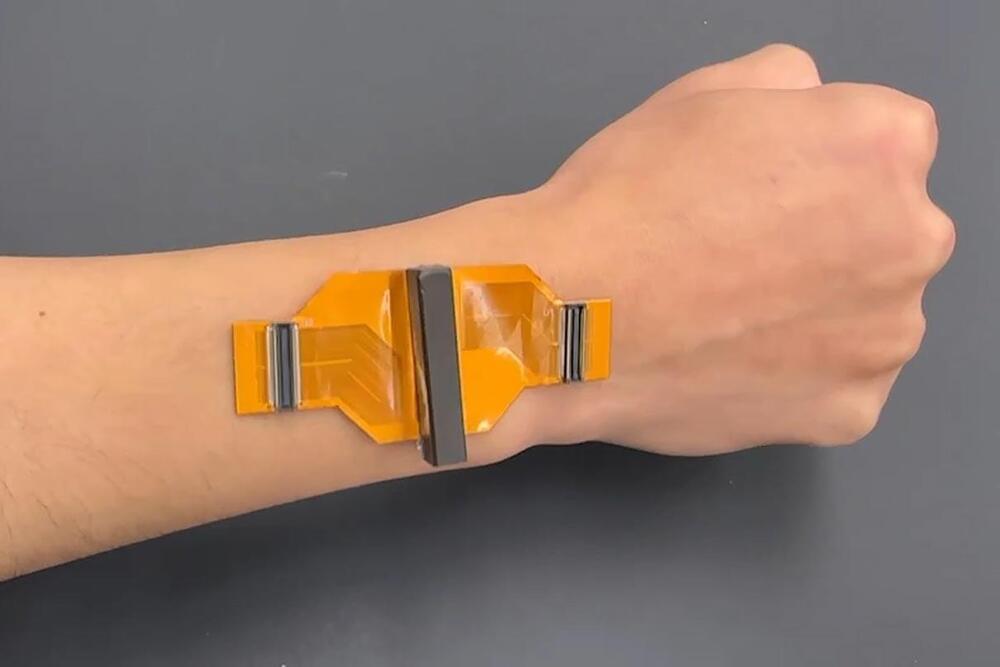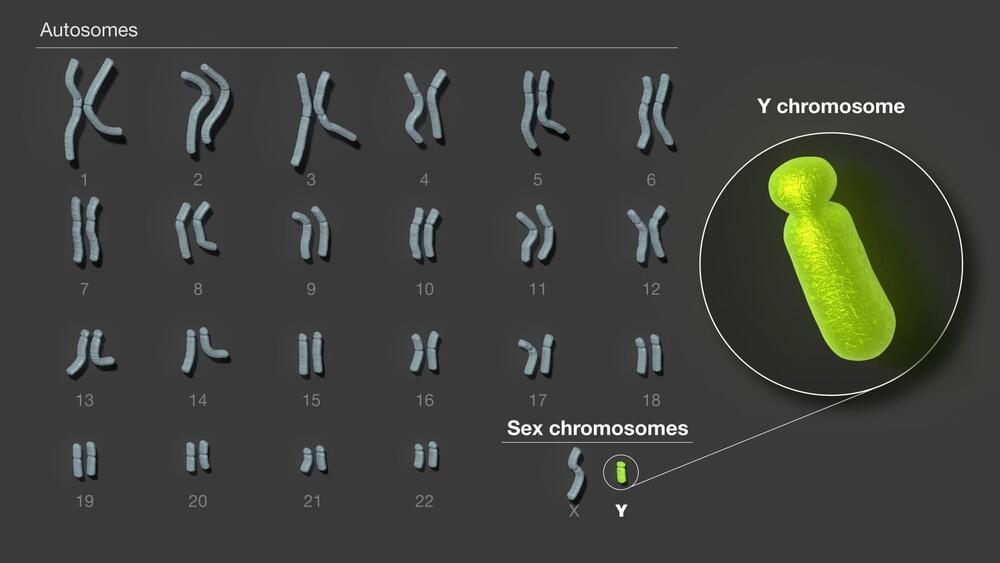Feb 28, 2024
MIT’s Wearable Ultrasound Sticker Monitors Health of Deep Internal Organs
Posted by Saúl Morales Rodriguéz in categories: biotech/medical, health, wearables
MIT ’s ultrasound sticker enables continuous monitoring of organ stiffness, revolutionizing the early detection of diseases such as liver and kidney failure.
MIT engineers have developed a small ultrasound sticker that can monitor the stiffness of organs deep inside the body. The sticker, about the size of a postage stamp, can be worn on the skin and is designed to pick up on signs of disease, such as liver and kidney failure and the progression of solid tumors.
In an open-access study published recently in Science Advances, the team reports that the sensor can send sound waves through the skin and into the body, where the waves reflect off internal organs and back out to the sticker. The pattern of the reflected waves can be read as a signature of organ rigidity, which the sticker can measure and track.


















